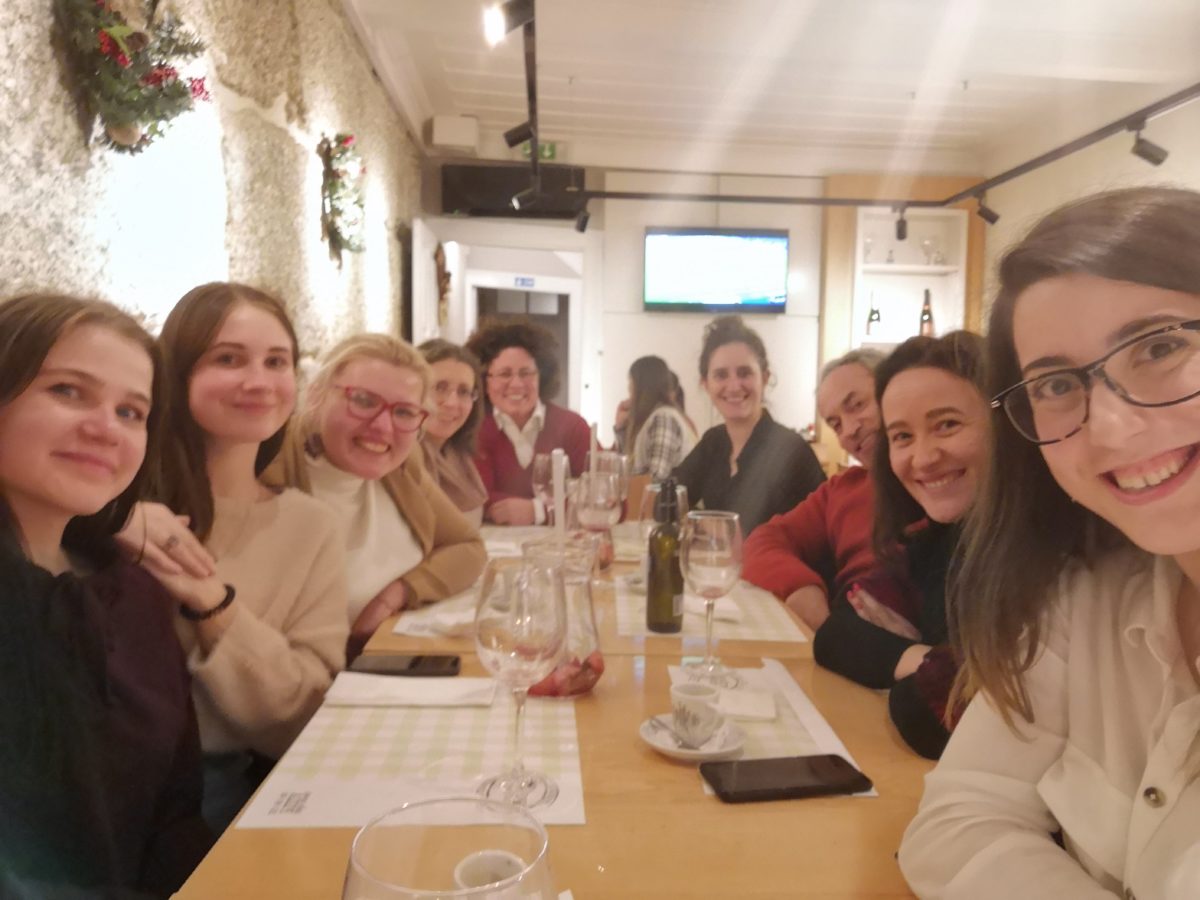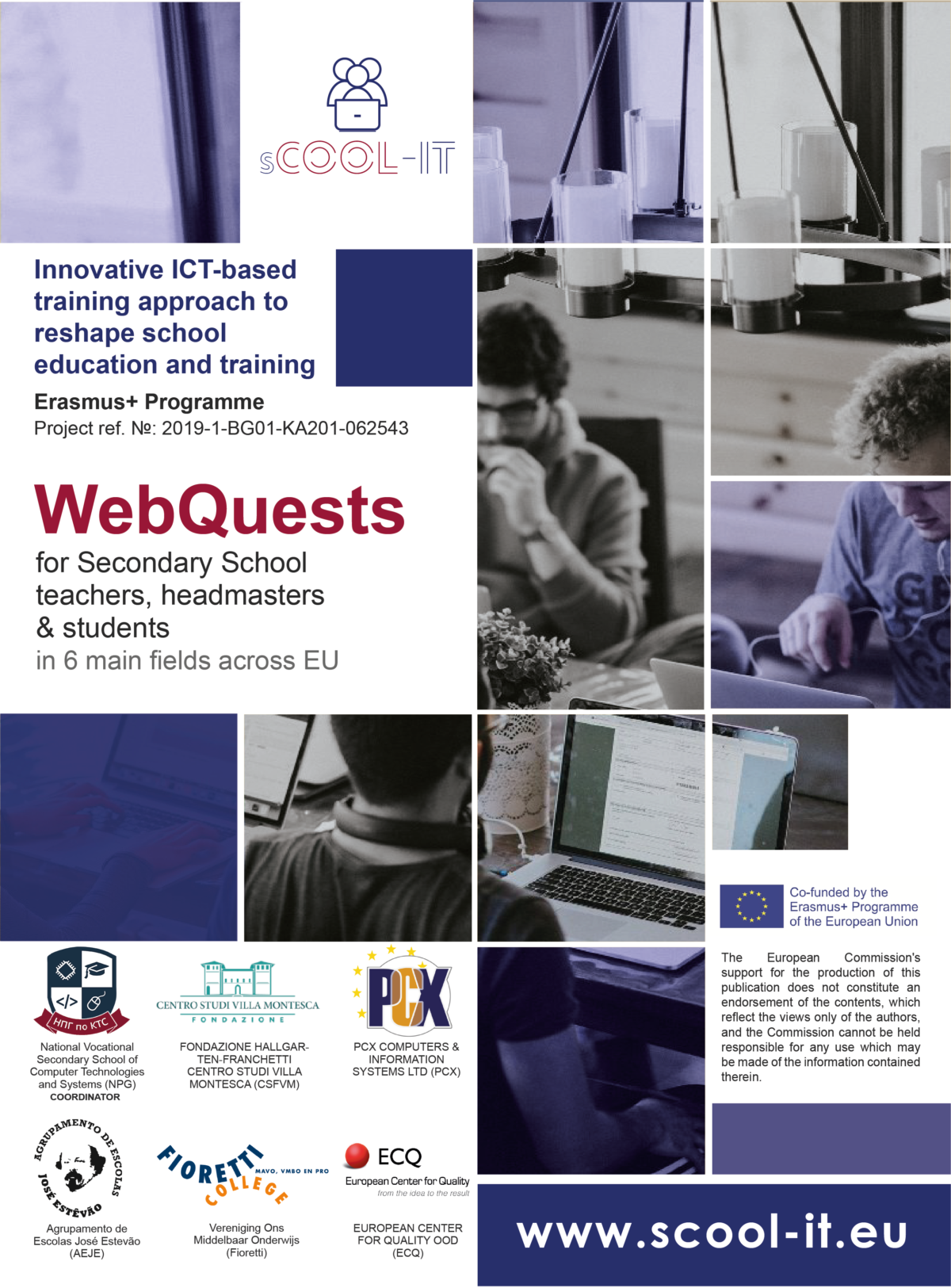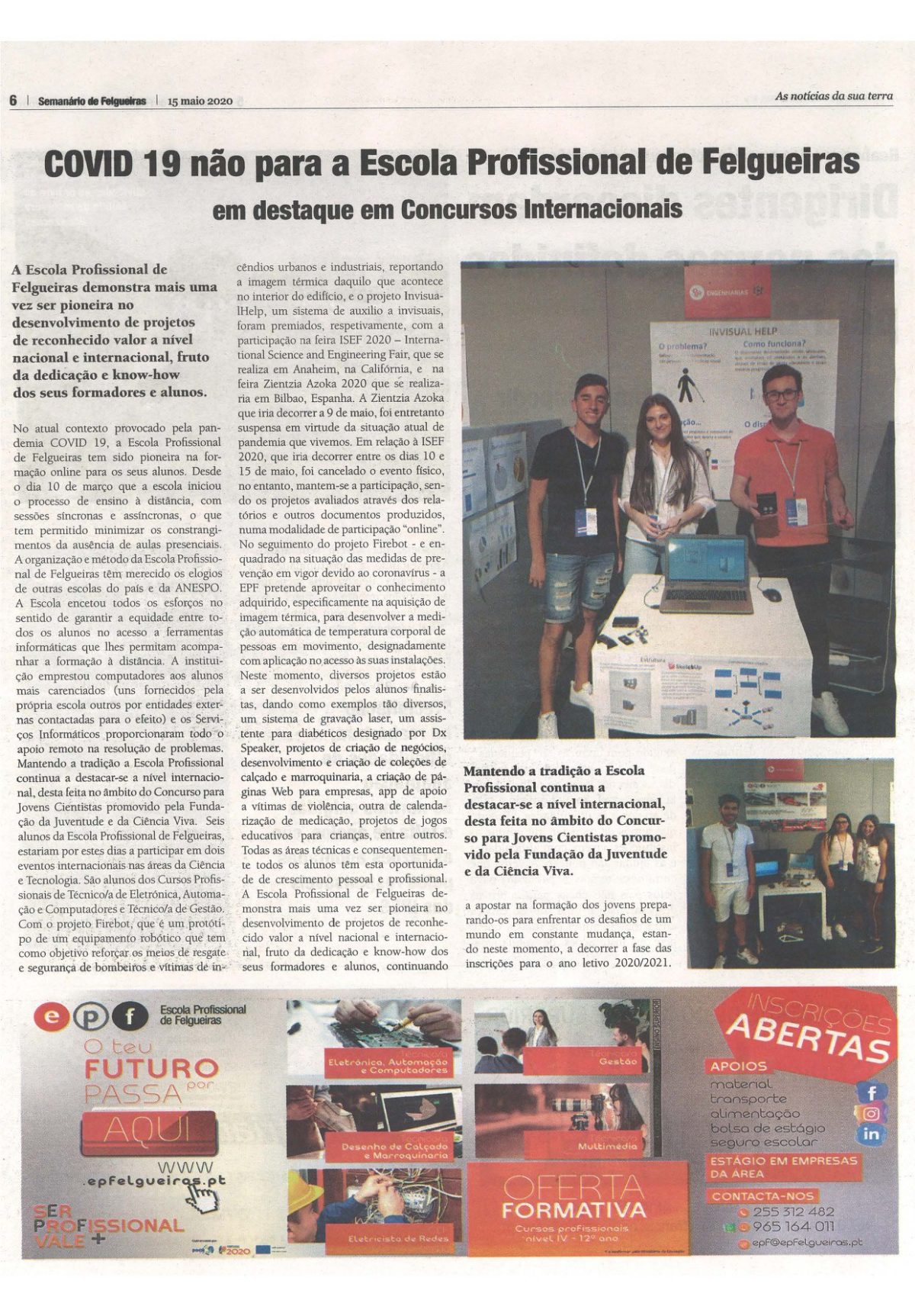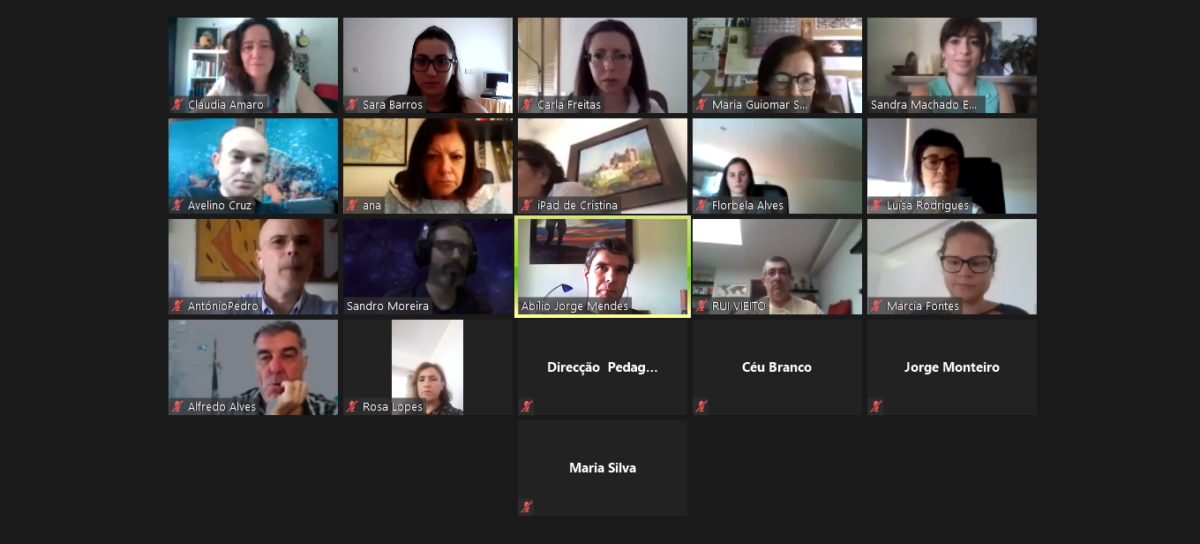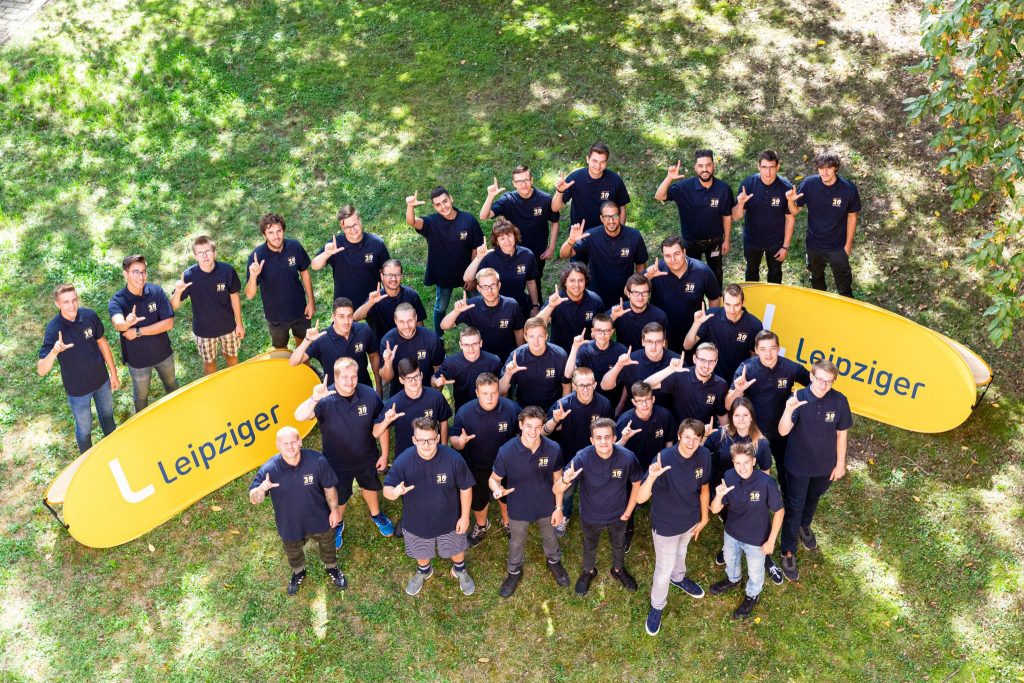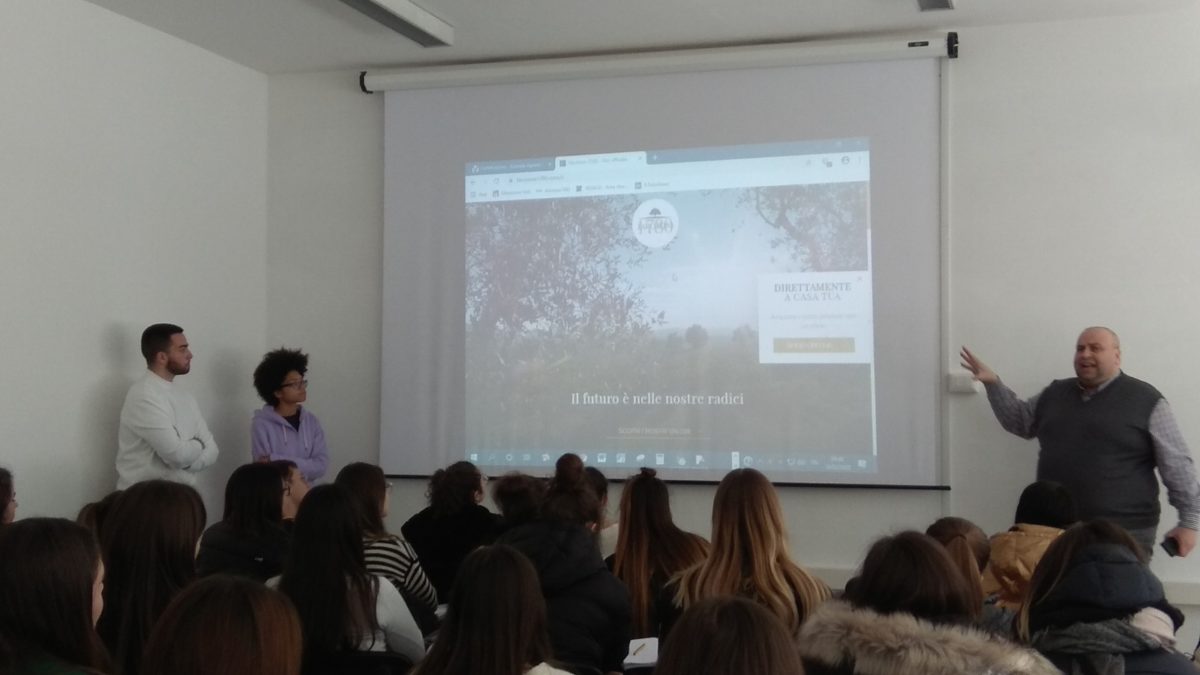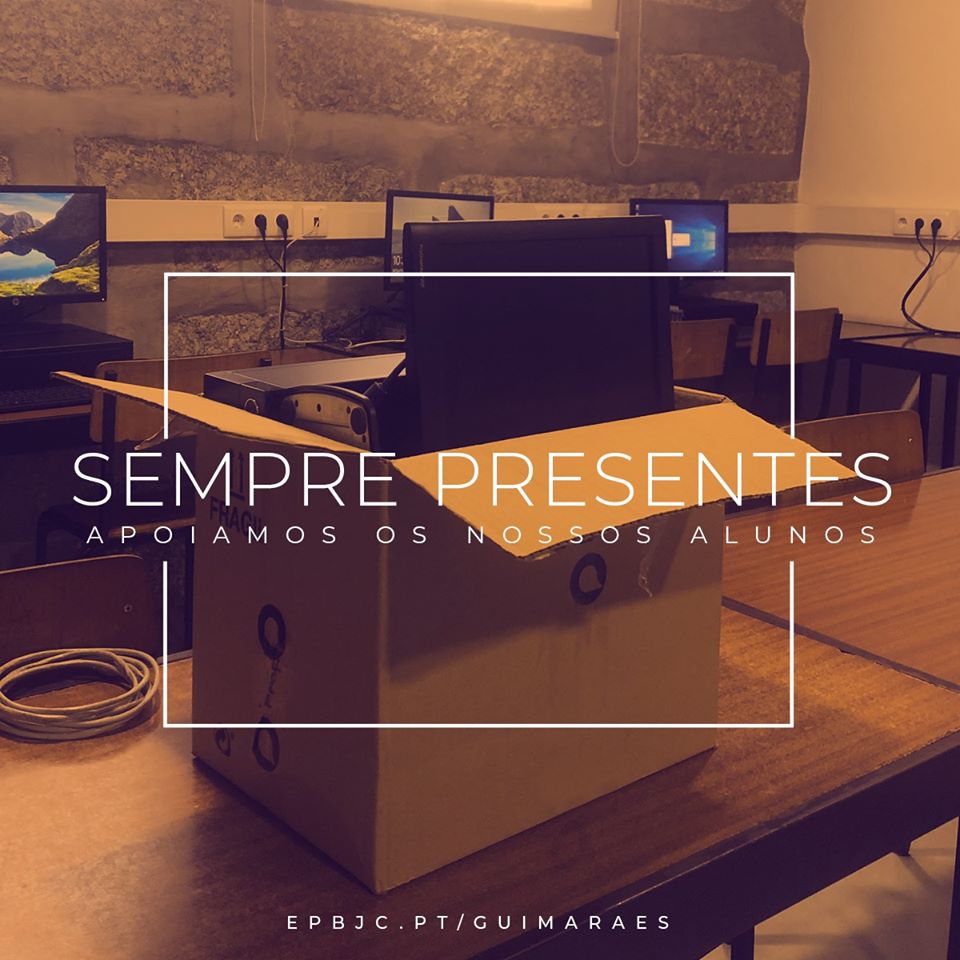The Portuguese National Network is one of the 5 VET National Networks created within the scope of the ENNE project. The five schools that helped create this network are located in the north of Portugal, they are private Vocational Schools and public Secondary schools offering Vocational Courses in different fields of studies, thus serving a wide audience.
Since its establishment, the schools have been thrilled to participate in the ENNE project and are eager to collaborate in the improvement of the quality and image of vocational education and training. Believing in the great potential of this type of education, these schools remain very committed and focused on providing great opportunities so that their students are better prepared to enter the job market. These schools will exchange their experiences, knowledge and tools to create value for VET and put mobilities and work-based learning at the centre of their strategies.
The first five associated partners integrating the Portuguese national network of VET providers are:
Escola Profissional de Felgueiras / Vocational School of Felgueiras is located in the north of Portugal, right at the centre of the footwear industry in Portugal. With more than 25 years of experience, it develops mechanisms of connection between the school and the institutions of the region in order to give students direct contact with the labour market and professional experience. At the moment, there are 267 students and 32 teachers distributed over 4 courses:
- Electronics, Automation and Computer Technician;
- Management Technician;
- Footwear and Leather Goods Design Technician;
- Multimedia Technician.
Agrupamento de Escolas da Arrifana / Arrifana’s School Group is located in the district of Aveiro. The reputable and experienced school group offers educational programs from pre-school to high school. Regarding VET, it offers only one Vocational Course, currently with 41 students:
Youth Technician
Escola Profissional Bento Jesus Caraça/ Vocational School Bento Jesus Caraça is based in Guimarães since 2017. It proposes to bring to the city a strong contribution to the social and professional development of young people by certifying highly specialized and qualified technicians. Here, the training is complemented with a professional internship, in a real working environment, to better prepare students for the labour market or to pursue studies in higher education. Currently, there are 71 students studying in one of the following courses:
- Communication, Marketing, Public Relations and Advertising Technician;
- Youth Technician;
- Logistics Technician
Cooperativa de Ensino Profissional do Centro Juvenil de Campanhã / Teaching Cooperative Vocational School of the Youth Center of Campanhã is situated in Porto, Portugal. The aim of the school is to provide vocational education as well as other forms of training that meet the interests and aspirations of young people, local institutions, such as municipalities or companies, and community in general. At the moment, this school has around 302 students, distributed over 4 courses:
- Computer Management Technician;
- Communication/Marketing, Public Relations and Advertisement Technician;
- Multimedia Technician;
- Secretariat Technician
Escola Secundária Francisco de Holanda / Francisco de Holanda Secondary School is located in the city of Guimarães, in the north of Portugal and it has a strong tradition in offering attractive and diverse professional courses. Always keeping in mind, the labour market in the region of Guimarães and surroundings, Francisco de Holanda Secondary School trains specialized technicians, who complement their training in local renowned companies. With 323 VET students and 116 VET teachers, the school offers the following courses:
- Information Systems Management and Programming technician
- Electronics, Automation and Computer Technician
- Trade Technician
- Industrial Design Technician
- Mechatronics Technician
- Food Processing and Quality Control
- Marketing Technician
- Geriatrics Technician
Our first collaboration as a network, as planned within the ENNE project, happened in May and consisted in the development of 3 Focus Groups, (due to COVID 19 these focus groups were developed online) to discuss with other VET providers how to improve and enhance VET in Portugal. With the collaboration of our Associated Partners, we reached out to 25 new VET providers and had 35 VET Teachers/ Directors participating in our Focus Groups.
Most of the participants agreed that by working as a network we could reach better opportunities and promote the Enhancement of VET nationally and Internationally.
Stay tuned! Soon, ENNE Portugal will have more Associated Partners.
